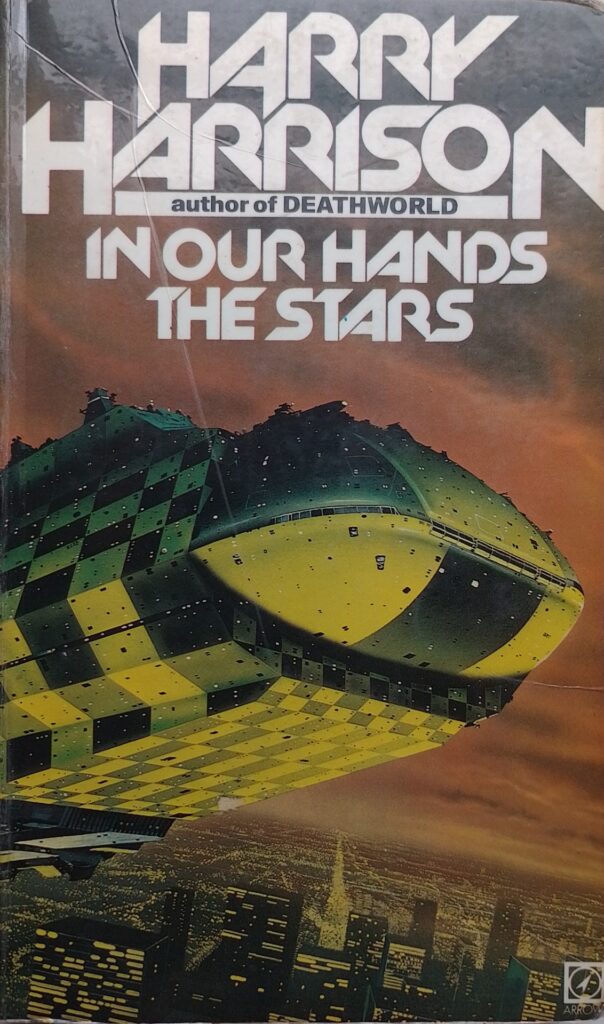(Book also known as The Daleth Effect.) First published 1970. Arrow paperback, 1981, pp 217, c.64,000 words.
At the superficial level this is a story of a man who discovers a wrinkle in Einstein’s equations that allows for the development of a means of eliminating the mass of objects, and therefore gravity has no effect and objects, e.g. spaceships, can be accelerated almost effortlessly, enabling very fast space travel. At a deeper level it is an exploration of loyalty in many forms.
A scientist working in Israel discovers the effect, which he names Daleth. Once he is able to prove the concept in the laboratory he decamps to Denmark, the land of his birth, and where a highly respected fellow physicist and old friend lives. Together they develop devices to take advantage of the effect, culminating in the launch of a small research submarine into space. Pretty soon every other country wants to get their hands on the technology because of its potential for both war and peace.
Read like that, this is a moderately well written science fiction story. An entertaining read with a fine cast of characters, most of whom are two-dimensional, but with sufficient ambiguity that one is left guessing who are the good guys and who the bad. Or is everyone simply out for what they can get?
Underlying the science fiction is an exploration of loyalty. Who or what should we be loyal to: self, family, spouse, friends, country of residence, country of birth, faith, co-religionists, political ideology (capitalism, communism, democracy, libertarianism, etc.), the whole human race, the planet Earth. Harrison makes a fine job of inweaving each of these as sources of conflict into his story. Occasionally it seems a little forced, but on the whole it is effectively done.
The physics behind the effect is glossed over but still almost plausible. There is no faster-than-light travel opened up here. Other than the Daleth effect itself, the story remains within known physics. It was interesting to note that when this was written, some still hoped that life might exist on the surface of Mars. Mariner 4, which flew by and photographed Mars in 1965 had shown a planet that had been dead for a long time, although to be fair, it wasn’t until Mariner 9 went into orbit and photographed most of the surface, that the poverty of conditions on the Martian surface definitively ruled out life there https://en.wikipedia.org/wiki/Mariner_9# .
For a book written prior to 1970, it is not surprising that all the main scientific and managerial roles are taken by men. Women are largely confined to roles as housewives or junior service positions (cabin attendant, secretary). One woman is an active participant in the story, both in the action and in the exploration of loyalty. Another is described as ‘a still attractive redhead, although she was in her mid-forties.’ [p 70].
Harrison writes well, making for easy reading. There are a couple of powerful scenes where one character is trying to manipulate another. The exploration of loyalty is not resolved, as it isn’t in life.
Wikipedia biography of Harrison: https://en.wikipedia.org/wiki/Harry_Harrison_(writer)
Wikipedia summary of the book: https://en.wikipedia.org/wiki/The_Daleth_Effect
Others’ reviews of the book: https://www.goodreads.com/book/show/2902810-in-our-hands-the-stars?ref=nav_sb_ss_1_22
© William John Graham, February 2024

